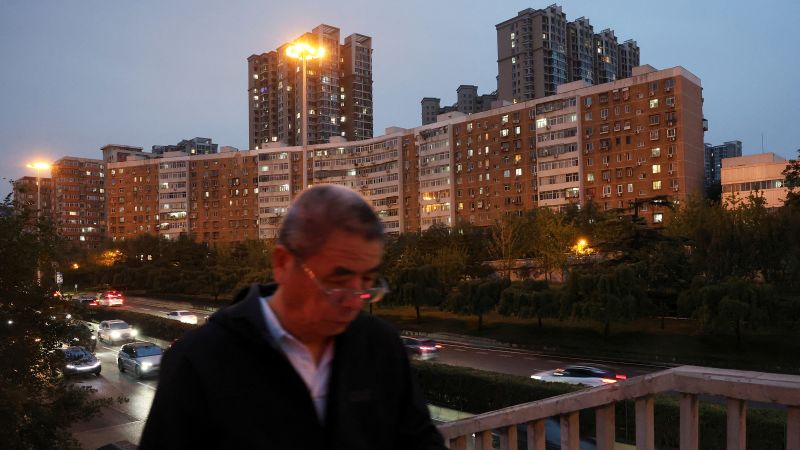Chinese property shares plummeted after the Ministry of Housing and Urban-Rural Development announced measures to bolster the real estate market that were deemed insufficient by investors and economists. These incremental measures include nearly doubling bank lending to designated property projects to four trillion yuan by the end of 2024. The lack of a more substantial stimulus package has caused concern about its ability to stabilize the housing market and restore confidence in the Chinese economy.
The Chinese government, led by President Xi Jinping, has been struggling to address a significant economic downturn, with concerns that China may miss its 5% growth rate target. In response, the government has implemented monetary measures to stimulate economic growth, including cuts to lending rates and reserve requirements for banks. However, these efforts have not been sufficient to revive the ailing property sector, which accounts for a significant portion of the Chinese economy and household wealth.
As the real estate market in China continues to struggle, there are fears that the crisis could have broader implications for the economy. The government’s clampdown on developers’ borrowing has led to a sharp decline in real estate prices and consumer confidence. This has prompted individuals and companies to sell assets and cut back on consumption and investment, further impacting economic growth. The lack of a comprehensive stimulus package has raised concerns about the government’s ability to address these challenges effectively.
Despite the government’s efforts to support the real estate market, investors remain skeptical about the effectiveness of the measures announced by the Ministry of Housing and Urban-Rural Development. The failure to deliver a more substantial stimulus package has caused Chinese property shares to tank, with the CSI300 real estate index declining by 5%. This has raised doubts about the government’s ability to stabilize the housing market and restore confidence in the economy.
The Chinese government has been under pressure to address the economic challenges facing the country, particularly as concerns grow about the impact of the ongoing real estate crisis. The government’s focus on monetary measures to stimulate growth has not been sufficient to address the root causes of the economic downturn. The lack of a comprehensive strategy to stabilize the housing market and restore confidence in the economy has raised questions about the government’s ability to guide China through these challenging times.
As the Chinese government grapples with the economic fallout from the real estate crisis, there is growing uncertainty about the country’s economic prospects. The failure to implement a more robust stimulus package has raised concerns about the government’s ability to address the underlying issues facing the economy. With Chinese property shares tumbling and economic growth at risk, the government faces a daunting task in restoring confidence in the economy and stabilizing the housing market.


